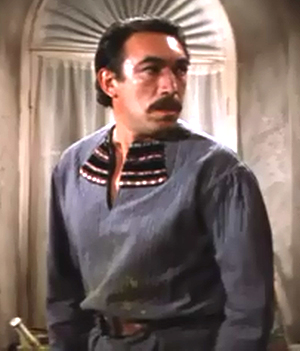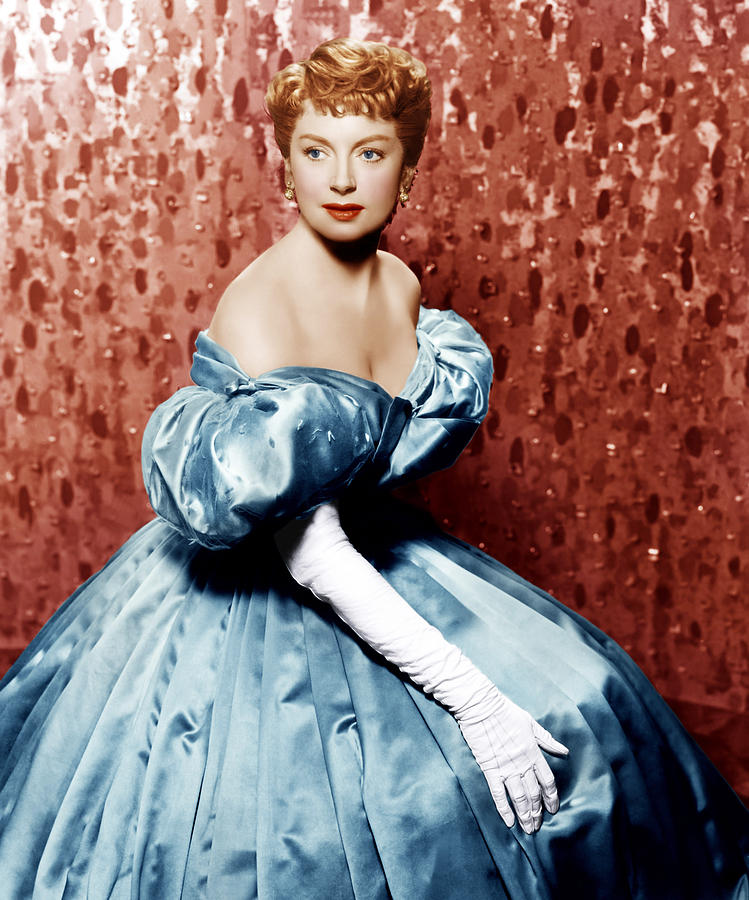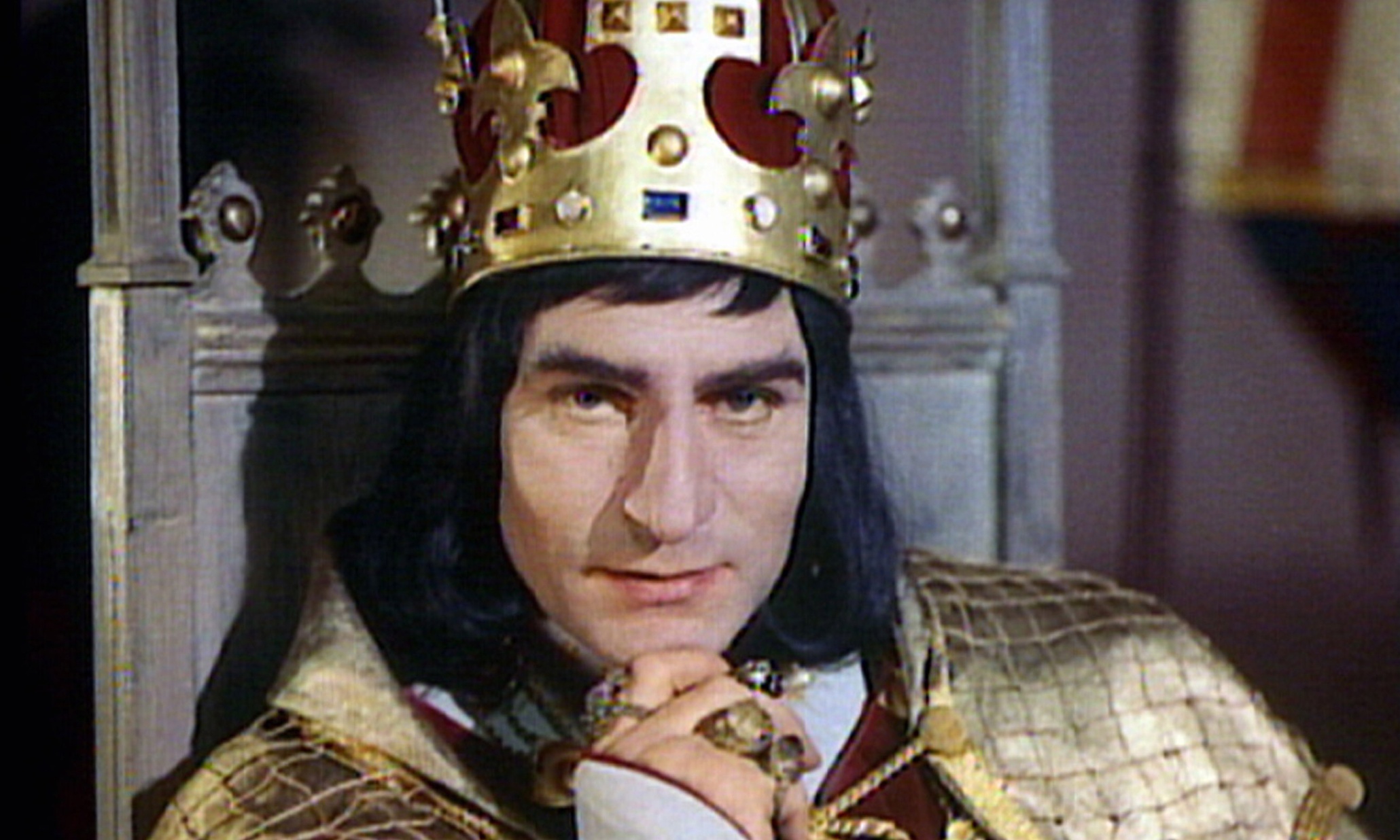 |
| Dorothy Malone: Best Supporting Actress for Written on the Wind |
TUESDAYS WITH OSCAR: 1956
The 29th Annual Academy Awards is perhaps one of the most shocking in terms of the actual Best Picture winner. While I thoroughly like Around the World in 80 Days, I think people were genuinely shocked that braggadocio impresario Mike Todd's only film won over two if not three genuine classics still remembered today. It even beat out The Ten Commandments, which is shown on television at least once a year (something that cannot be said of Todd's Jules Verne adaptation).
As a side note, The Ten Commandments is NOT, repeat NOT an Easter movie. It has nothing whatsoever to do with the Resurrection of Christ. It's a Passover movie, as it dealt with the Israelites flight from Egypt. Passover and Easter happen to coincide, but I do with people would stop calling The Ten Commandments' annual showing as "an Easter tradition". They are free to call it "an annual epic tradition", which it is. No matter how often they screen it, I always end up watching it.
Still, I don't think anyone was truly expecting Around the World in 80 Days to win. My theory as to how it won is simple: every person who had a cameo voted for it, and that would have assured it sweeping to the winner's circle.
We also fail to have a consensus in terms of acting, as all four winners are from four different films (and curiously, only one of the winners was from a Best Picture nominee). Curious that.
As always this is just for fun and should not be taken as my final decision. I should like to watch all the nominees and winners before making my final, FINAL choice. Now, on to cataloging the official winners (in bold) and my selections (in red). Also, my substitutions (in green).
THE 1956 ACADEMY AWARD WINNERS
BEST ORIGINAL SONG
Friendly Persuasion (Thee I Love): Friendly Persuasion
Julie: Julie
True Love: High Society
Que Sera, Sera (Whatever Will Be, Will Be): The Man Who Knew Too Much
Written on the Wind: Written on the Wind
How eternally embarrassing if Written on the Wind had won. Que Sera, Sera is a really unusual number given the context: you have this lovely, almost lullaby aspect in a song that somehow was part of a suspenseful Alfred Hitchcock film. Yet the film was smart enough to allow Doris Day a musical number that is quite tender and touching but which at the end of the film becomes an almost suspenseful situation. Que Sera, Sera became Day's signature song, and it's one of those songs that has seeped into the American consciousness.
I made only one substitution. Sorry, but I don't think it's Written on the Wind.
Friendly Persuasion (Thee I Love): Friendly Persuasion
The Girl Can't Help It: The Girl Can't Help It
Julie: Julie
True Love: High Society
Que Sera, Sera (Whatever Will Be, Will Be): The Man Who Knew Too Much
Que Sera, Sera is an iconic song, so frankly, I Can't Help It. However, the Little Richard number from the Jayne Mansfield vehicle is better remembered than all the nominees...except for Que Sera, Sera. Therefore, while it's not my choice...
BEST DIRECTOR
Michael Anderson: Around the World in 80 Days
Walter Lang: The King and I
George Stevens: Giant
King Vidor: War and Peace
William Wyler: Friendly Persuasion
I have to imagine that it takes a lot to manage something as unwieldy as Around the World in 80 Days, so I'm not going to knock Anderson's nomination. However, this year the Best Director and Best Picture did not correlate, and they usually do. This is why I think Giant probably would have won save for Todd's wheeling-and-dealing (and having Elizabeth Taylor in your arms didn't hurt I'm sure). For me, Giant is a real definition of an epic, befitting the subject matter (my home state of Texas). Stevens kept things flowing remarkably well given how massive Giant was (which I think bothered Brother Gabe, who is as passionate for the Lone Star State as I am, but perhaps found Giant's length hard to bear).
Cecil B. DeMille: The Ten Commandments
John Ford: The Searchers
Akira Kurosawa: Seven Samurai
Don Siegel: Invasion of the Body Snatchers
George Stevens: Giant
It's extraordinary to think that pretty much all the nominees save Giant aren't really remembered for those specific films while there were so many choices this year. I can understand why Ford and Kurosawa weren't nominated (the films weren't exactly major box office as was Around the World in 80 Days or The King and I), but why DeMille was left out when The Ten Commandments was the biggest hit of the year IS a mystery. I figure that after The Greatest Show on Earth got DeMille his only competitive Oscar, the Academy thought they'd done enough. Probably more than a few thought he wouldn't live long enough to finish his Biblical remake. Yes, I'd say the performances aren't exactly subtle, but give DeMille credit: he kept things flowing so quickly one doesn't really notice three hours have passed by (and the Parting of the Red Sea is still one of the most spectacular moments in film history, even with the rise of CGI, rightfully winning Best Visual Effects).
It was an extremely tough decision between my beloved Ford and my beloved Kurosawa, but in the end I opted for the original version of The Magnificent Seven (soon to be remade...though I can only ask 'why'). Kurosawa gave us this massive, massive film, but it's so intricate and powerful and moving, with comedy, action, drama, romance...Seven Samurai really is one of the greatest films ever made, and if you say you don't like it, then you just don't like movies, period.
BEST SUPPORTING ACTRESS
Mildred Dunnock: Baby Doll
Eileen Heckart: The Bad Seed
Dorothy Malone: Written on the Wind
Mercedes McCambridge: Giant
Patty McCormack: The Bad Seed
This is yet another case of two actresses from the same film essentially cancelling each other out. That just seems to be a routine situation with these dual nominations. It's hard for one co-star to out-do the other. Out of all the nominees here, I can't help thinking just how deliciously evil McCormack's little murderous child was. Is it a great performance? I can't say that it is. I can say that it's become a pretty iconic one: the little pigtailed girl who is irredeemably evil. After all, who really remembers Malone?
No Substitutions.
BEST SUPPORTING ACTOR
Don Murray: Bus Stop
Anthony Perkins: Friendly Persuasion
Anthony Quinn: Lust for Life
Mickey Rooney: The Bold and the Brave
Robert Stack: Written on the Wind
I'm so dying to make a "Robert Stack's nomination is an Unsolved Mystery" crack. I never understood why Murray was singled out while his costar wasn't, given I wasn't particularly overwhelmed by Murray's performance as the hick cowboy who knows nothing in the ways of love. For the longest time I struggled between Perkins and Quinn, between the young Quaker who finds he has to fight and the titanic, volcanic Paul Cezanne.
I opted for Quinn namely because he made Lust for Life bearable for me. Lust for Life is not a film I am eager to revisit anytime this lifetime. However, what surprised me was the Quinn, who could be just as overblown as anyone in this period, wasn't as over-the-top as he could be. For that, he deserves mad props.
Yul Brynner: The Ten Commandments
Cantiflas: Around the World in 80 Days
Anthony Perkins: Friendly Persuasion
Walter Pidgeon: Forbidden Planet
Anthony Quinn: Lust for Life
Well, there's just no way around it: Cantiflas WAS Around the World in 80 Days. So powerful is his presence in the film that in Latin America, the film was marketed as a Cantinflas film rather than a David Niven film. As far as Cantiflas' audience was concerned, Cantiflas was the star of Around the World in 80 Days. Everyone else was a guest star.
It's understandable why people thought the film was Cantinflas' show. He essentially played the "Cantinflas" character, only in English. Granted, his English wasn't perfect (and we can kind of throw out the window the fact that the very Mexican Cantinflas is supposed to be the very French Passepartout). This was a stroke of marketing genius on the part of both Cantinflas and Todd, bringing in new audiences for both men.
By the way, it's pronounced "Kahn-TEEN-flahs", NOT "CAN'T-in-FLAS".
BEST ACTRESS
Carroll Baker: Baby Doll
Ingrid Bergman: Anastasia
Katharine Hepburn: The Rainmaker
Nancy Dell: The Bad Seed
Deborah Kerr: The King and I
Ingrid Bergman is no longer a slut! Hurray!
After her Italian frolic, where she scandalized the world by running off with Italian director Roberto Rossellini and having a child out-of-wedlock by him (and leaving her husband and child to boot), Bergman was condemned on the floor of the U.S. Senate and essentially barred from American films. Having served her 'penance' and now free of Rossellini, she made her 'comeback' with the tale of the lost Russian Grand Duchess, and I at least can't help feeling that her Oscar win in Anastasia was Hollywood's way of welcoming her back (and forgiving this 'indiscretion of an American movie star').
I can't say Anastasia is a bad film or a bad performance (I don't think Bergman gave bad performances), but I still think Kerr is much more remembered as the teacher to the King of Siam than Bergman is for this particular film versus others like Casablanca, Gaslight or Notorious.
Doris Day: The Man Who Knew Too Much
Deborah Kerr: The King and I
Giulietta Masina: La Strada
Marilyn Monroe: Bus Stop
Elizabeth Taylor: Giant
Oh, how I struggled between two of my nominees. I've flipped constantly between Masina's heartbreaking circus slave and Monroe's heartbreaking chanteuse. Both of them reached great moments of sadness and despair as both their characters found their dreams dashed. Granted, Monroe's Cherie had a happyish ending, while Masina's Gelsomina has no such ending. They are both brilliant performances, so why am I tipping it to Monroe at this moment?
I think it has to do with the fact that this is her first film after her training at the Actor's Studio, and we can see how much that experience played in her role. Here, Monroe shows again that she could be a serious dramatic actress, a real actress, not just a wonderful comedienne (which she was). There is depth, there is pain, there is forced joy masking a despair.
If it were any other person rather than Marilyn Monroe, I think she and not Don Murray would have been recognized with a nomination.
BEST ACTOR
Yul Brynner: The King and I
James Dean: Giant
Kirk Douglas: Lust for Life
Rock Hudson: Giant
Laurence Olivier: Richard III
This was really a process of elimination. First, Dean and Hudson cancel each other out (again, another case of two actors in the same film knocking the other out in what is vote-splitting. Douglas I tossed out immediately. I found his performance bordering on parody (if not downright parody), constantly screaming at every turn and going all-out in the crazy.
That leaves two men standing, two men recreating their stage triumphs. I might change my mind and give it back to Brynner's Siamese monarch, but for now, I'm going with Olivier's slimey, sleazy, immoral British monarch. Is it a touch too much? Well, Olivier IS playing a villain, and there's nothing subtle about this Richard III (history be damned).
Perhaps if one thinks Olivier is a bit much, they should take it up with the film's director...
Charlton Heston: The Ten Commandments
Kevin McCarthy: Invasion of the Body Snatchers
Toshiro Mifune: Seven Samurai
Paul Newman: Somebody Up There Likes Me
John Wayne: The Searchers
It's extraordinary that I did not nominate a single performance from the original nominees (despite having respect for them). I still can't believe Heston was overlooked for one of his most iconic roles. To many, Heston IS Moses.
It wasn't much of a struggle, though it was a bit of one between Mifune and Wayne, but in the end, there simply cannot be any other choice. The Searchers is not just John Wayne's greatest performance, but one of THE greatest performances of all time. It disproves in a big way the idea that Wayne couldn't act. Ethan Edwards, this titanic force of fury (righteous and otherwise), is a man seething with hatred and rage, a monstrous bigot who is also at his core, a lost man. He is both God's Avenger and God's Rival, a man driven with almost homicidal wrath towards his niece, whom he loves and hates simultaneously.
Wayne's final scene, when he sees everyone else enter the homestead but he remains outside, alone, a man who must wander forever between the winds, is as haunting an image and a powerful a performance as can ever be recorded.
It's just a perfect performance.
BEST PICTURE
Around the World in 80 Days
Friendly Persuasion
Giant
The King and I
The Ten Commandments
I think history has proven that this year, Hollywood made a mistake. I liked Around the World in 80 Days, but my like for the film does not blind me to the fact that it is one of the weaker Best Picture winners. There seemed to be in the 1950s a curious collection of odd Best Picture choices when their competition is more remembered (An American in Paris over both A Streetcar Named Desire and A Place in the Sun, The Greatest Show on Earth over both The Quiet Man and High Noon, and now Around the World in 80 Days over both Giant and The Ten Commandments). I think Around the World in 80 Days is generally perceived to be one of the worst Best Picture choices, though I think the idea that it is a bad film per se is unfair. It's light, it's entertaining, it has a beautiful score by Victor Young (who would win his only Oscar for it, and that one was posthumous).
Still, the idea that this lightweight concoction is better than George Stevens' massive Texas biopic (can a state have a biopic? Well, if it's TEXAS) is laughable. I think that Around the World in 80 Days, while pleasant, is pretty much forgotten (and as a side note, the Edward R. Murrow opening should have been cut because it lengthens the film and dates it, for I doubt many people today know WHO Edward R. Murrow is. Wonder how Mike Todd conned HIM into doing that bit). Both The Ten Commandments and Giant have not been. Still, I'm siding with my home state on this one, and make the sweeping Texan epic Giant my choice from among the nominees.
Forbidden Planet
Giant
The Searchers
Seven Samurai
The Ten Commandments
Oh, what a choice I had to make. I love each of these films, and each one of them has stood the test of time (sorry, Around the World in 80 Days). How to choose among these five?
Well, choose I did, and after a lot of soul searching and struggle (with a virtual death match in my mind), I chose the film that I think simply rules over them all. It's interesting how filmmaking geniuses influenced other filmmaking geniuses. Kurosawa was highly influenced by John Ford films, which in turn influenced people like George Lucas. Kurosawa borrowed the arrival of Ethan to the burning homestead in The Searchers for his own meditation on war, RAN, while Lucas' epic Star Wars was in turn inspired by Kurosawa's The Hidden Fortress (where two bumbling men helped in rescuing a princess). Full circle there.
Seven Samurai is a massive film, but it also is one you think simply cannot be cut more without losing its power, humor, and epic scale. Everything about it is pretty much perfect, and I have yet to meet someone who wasn't overwhelmed by its total brilliance. As far as I'm concerned, Seven Samurai is one of the Greatest Films Ever Made. Full stop.
As such, I choose Seven Samurai as the Best Picture of 1956.
Next Time: The 1957 Academy Awards









No comments:
Post a Comment
Views are always welcome, but I would ask that no vulgarity be used. Any posts that contain foul language or are bigoted in any way will not be posted.
Thank you.